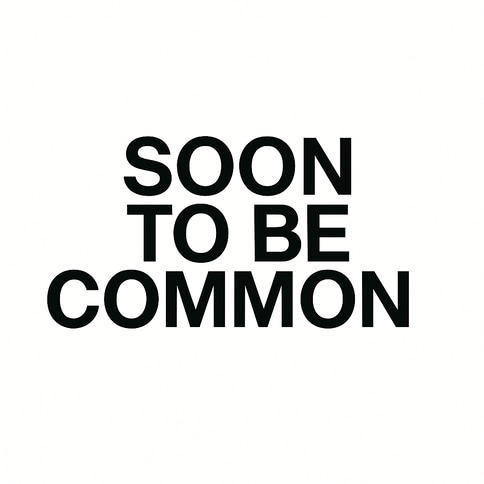Exploring Tomorrow's Absurdities: The Normalization of Dystopian Realities
Soon to be common documents the inevitable absurdities of our future. We explore how corporate culture, tech salvation, and elite hypocrisy shape our reality, revealing the stark contrast between marketed utopia and lived dystopia. Join us in this archive of tomorrow's cynical certainties and societal contradictions.
5/8/20242 min read


Welcome to the Future—It’s Weirder Than Expected
The future was supposed to be flying cars and robot butlers. Instead, we got influencer politicians, AI-generated art winning competitions, and corporations selling us solutions to problems they created. The line between dystopia and daily life has blurred into something stranger: a world where the absurd is not just accepted but expected.
How did we get here? And why does it all feel so… normal?
1. The Quiet Rise of Soft Dystopias
Traditional dystopias were loud—oppressive governments, violent rebellions, overt surveillance. Our version is subtler:
Surveillance Capitalism: We pay for "free" apps with our attention, data, and mental health.
Digital Serfdom: Gig workers hustle for algorithms, not bosses, in an endless cycle of precarious labor.
Climate Collapse with Branding: Oil companies rebrand as "energy transition leaders" while record heatwaves become background noise.
No dystopian overlord forced this on us—we opted in, one convenience at a time.
2. Absurdity as the New Normal
Reality has become a satire of itself:
Hyperreal Politics: Leaders communicate in memes, scandals vanish in 24-hour news cycles, and deepfakes muddy truth beyond recognition.
Corporate Dystopia: Fast food chains sell "plant-based" burgers while rainforests burn. Tech billionaires preach about "the future" from private islands.
The Algorithmic Self: We curate online personas so polished they feel more real than our actual lives.
The most unsettling part? We’ve stopped questioning it.
3. Coping Mechanisms for the Post-Sanity Era
If absurdity is the baseline, how do we stay grounded?
Laugh (But Stay Aware): Dark humor helps process chaos, but don’t let irony become apathy.
Log Off Occasionally: The internet isn’t real life. Go outside. Talk to a human. Remember what silence sounds like.
Reject Manufactured Despair: The world is burning, but you’re not required to watch it 24/7. Focus on what you can change.
Create, Don’t Just Consume: Write, build, organize—do something that isn’t monetized by a tech giant.
Conclusion: Living in the Age of Unreality
The future won’t get less bizarre. AI will get smarter, climate disasters more frequent, and reality even harder to define. The challenge isn’t just surviving—it’s staying human in a world that rewards detachment.
So stay skeptical. Stay engaged. And, when it all gets too surreal, remember: the weirdest thing about dystopia is how easily we learned to live in it.
—5 min read. Now back to your doomscrolling.
Dystopia
Exploring the absurdities of our corporate culture.
Archive
Dispatch
© 2025. All rights reserved.
